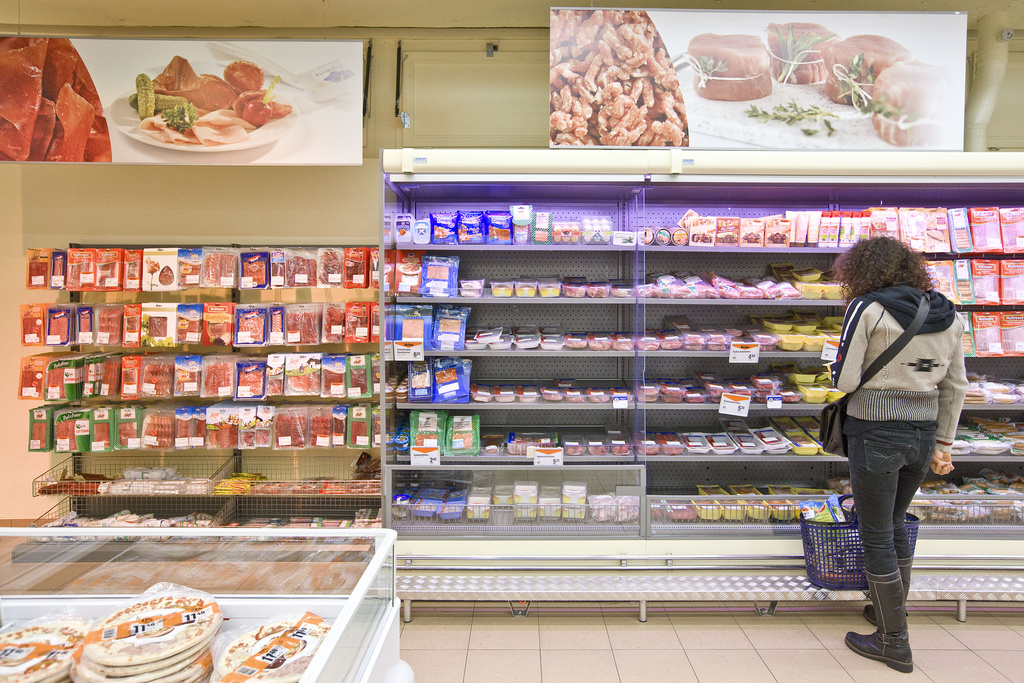Strong franc continues to haunt Swiss economy

Switzerland’s central bank, industrial exporters and retailers continue to shoulder the burden of the strengthening franc, which shows no signs of slackening.
The Swiss National Bank (SNB) has spent billions of francs buying euros in an effort to stem the franc’s rise. The SNB is expected to reveal a paper loss of up to €7.5 billion (SFr10 billion) when it announces half-year results next month.
The central bank has slowed its intervention in the monetary markets as manufacturing exports and job expectations have picked up, with the franc hovering at SFr1.30-SFr1.35 against the euro.
The Swiss franc has been gaining steadily in value in the past year on the back of fears that eurozone countries such as Greece would default on government debts. The franc has also been favoured as a safe haven currency in times of economic difficulty, while financial speculators have also been blamed for some sudden adjustments.
Late last year, the Swiss had to pay around SFr1.50 for a euro, but that psychological barrier was broken in December. On July 1 this year the franc reached its strongest ever position, with a euro costing just SFr1.3070.
The estimated SNB losses from the Financial Times newspaper have failed to send alarm bells ringing throughout Switzerland. The central bank can wait until the euro appreciates before selling its reserves, and the intervention has widely been seen to have worked.
Manufacturing expects intervention
“We expect the franc to maintain its current level against the euro for the next 12 months,” Bank Sarasin economist Alessandro Bee told swissinfo.ch. “But a mid-term fair value would be SFr1.40 to SFr1.45. There is potential for the euro to rebound and for the SNB to recoup its losses.”
He added: “The SNB intervened to support Swiss exports, not to make a profit. You always have to balance potential losses with the fact that exports could have come under greater pressure without intervention.”
In fact, manufacturers want the central bank to continue buying euros, with Johann Schneider-Ammann of the Swissmem umbrella industrial group seeking an audience with the SNB this week to determine its future strategy.
Although Swiss manufacturing exports have started to pick up in recent months, the strong franc continues to eat into margins, particularly for companies that send the lion’s share of their goods to the European market.
Some manufacturers have even warned that they would have to relocate production outside Switzerland if the franc remained so strong for many more months.
The SNB appears to have scaled down its intervention in the money markets in recent weeks, but the central bank’s president Philipp Hildebrand recently indicated that it would act again to avoid “excessive” appreciation of the franc.
Shoppers move over borders
Swiss retailers are also scrambling to persuade customers not to do their shopping over the borders, where the cost of goods has become even cheaper than normal thanks to exchange rates.
Coop, the second-largest supermarket chain in Switzerland, announced over the weekend that it was reducing the price of a range of goods in response to the weakening euro.
Spokeswoman Denise Stalder denied this was in response to customers preferring to buy goods in Germany or France. “We are able to buy our goods at cheaper prices from our European suppliers and we are passing on the cost to our customers,” she told swissinfo.ch.
Coop research shows that fewer Swiss have indulged in “retail tourism” in the past few years. The research estimates that in 2005 retailers lost SFr2.1 billion to shops in other countries just over the border, a figure that sank to SFr1.8 billion last year.
But there has been plenty of recent anecdotal evidence in the media of German and French shops doing bumper trade from Swiss customers.
“It’s no problem for Swiss consumers living in Basel, for example, to go over the border to do their shopping. Swiss retailers could start to have quite a problem unless they react,” Alessandro Bee told swissinfo.ch.
Matthew Allen, swissinfo.ch
Despite the ongoing woes of the strong franc, the Swiss economy has weathered the economic crisis relatively well, according to Credit Suisse bank research.
Economists at the bank published a report last week that showed Switzerland was set up for economic prosperity for the next decade.
The report identified three recent trends that have made the Swiss economy more competitive in an international setting.
First, the Swiss economy has adapted to a decline in traditional manufacturing output by building up strength in the tertiary sector, characterised by the administrative and service sectors.
Second, many manufacturing jobs have been relocated abroad to lower-cost countries during times of economic difficulty, keeping companies competitive.
Third, a liberalisation of many industries in recent years has improved domestic competition and made companies leaner and fitter to compete in the global arena.
The biggest limit to growth is geographical, according to Credit Suisse.
Switzerland’s small size is seen as a natural buffer to expansion, although there is evidence that some sectors are moving out of cities to take up space in more rural areas.

In compliance with the JTI standards
More: SWI swissinfo.ch certified by the Journalism Trust Initiative











You can find an overview of ongoing debates with our journalists here . Please join us!
If you want to start a conversation about a topic raised in this article or want to report factual errors, email us at english@swissinfo.ch.